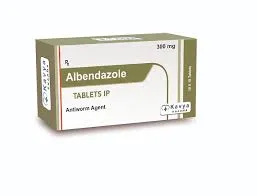- Afrikaans
- Albanian
- Amharic
- Arabic
- Armenian
- Azerbaijani
- Basque
- Belarusian
- Bengali
- Bosnian
- Bulgarian
- Catalan
- Cebuano
- Corsican
- Croatian
- Czech
- Danish
- Dutch
- English
- Esperanto
- Estonian
- Finnish
- French
- Frisian
- Galician
- Georgian
- German
- Greek
- Gujarati
- Haitian Creole
- hausa
- hawaiian
- Hebrew
- Hindi
- Miao
- Hungarian
- Icelandic
- igbo
- Indonesian
- irish
- Italian
- Japanese
- Javanese
- Kannada
- kazakh
- Khmer
- Rwandese
- Korean
- Kurdish
- Kyrgyz
- Lao
- Latin
- Latvian
- Lithuanian
- Luxembourgish
- Macedonian
- Malgashi
- Malay
- Malayalam
- Maltese
- Maori
- Marathi
- Mongolian
- Myanmar
- Nepali
- Norwegian
- Norwegian
- Occitan
- Pashto
- Persian
- Polish
- Portuguese
- Punjabi
- Romanian
- Russian
- Samoan
- Scottish Gaelic
- Serbian
- Sesotho
- Shona
- Sindhi
- Sinhala
- Slovak
- Slovenian
- Somali
- Spanish
- Sundanese
- Swahili
- Swedish
- Tagalog
- Tajik
- Tamil
- Tatar
- Telugu
- Thai
- Turkish
- Turkmen
- Ukrainian
- Urdu
- Uighur
- Uzbek
- Vietnamese
- Welsh
- Bantu
- Yiddish
- Yoruba
- Zulu
Nov . 12, 2024 20:13 Back to list
doxycycline hyclate tablets
Doxycycline Hyclate Tablets An Overview
Doxycycline hyclate is a broad-spectrum antibiotic belonging to the tetracycline class. It is widely utilized in the treatment of various bacterial infections and is particularly valued for its effectiveness against both gram-positive and gram-negative bacteria. This medication is commonly prescribed in the form of tablets, known as doxycycline hyclate tablets, which are favored for their convenience and efficacy.
Mechanism of Action
The primary mechanism through which doxycycline exerts its antibacterial effects involves the inhibition of protein synthesis in bacteria. By binding to the 30S ribosomal subunit, doxycycline prevents the addition of new amino acids to the growing polypeptide chain. This action ultimately stunts bacterial growth and reproduction, allowing the body’s immune system to combat the infection more effectively.
Indications
Doxycycline hyclate tablets are indicated for a wide range of conditions. They are effective in treating respiratory tract infections, urinary tract infections, skin infections, and certain sexually transmitted diseases such as chlamydia and syphilis. Moreover, doxycycline is commonly used for the prevention of malaria in travelers to regions where the disease is prevalent. Additionally, it has therapeutic applications in the treatment of Lyme disease and as part of the regimen for managing acne.
Dosage and Administration
The dosage of doxycycline hyclate tablets varies depending on the specific condition being treated. For most bacterial infections in adults, the typical initial dose is 100 mg, followed by a maintenance dose of 100 mg daily. It is important to follow the prescribing physician's instructions regarding dosage to ensure optimal results and to minimize the risk of side effects.
doxycycline hyclate tablets

Doxycycline should be taken with a full glass of water and can be taken with or without food. However, taking it with food may help reduce gastrointestinal irritation. It is essential to avoid taking doxycycline with dairy products or calcium-fortified foods, as these can interfere with the absorption of the medication.
Side Effects
As with any medication, doxycycline hyclate tablets can cause side effects. Common side effects may include gastrointestinal disturbances such as nausea, vomiting, and diarrhea. Some individuals may also experience skin sensitivity to sunlight, which increases the risk of sunburn. More serious side effects, while rare, can include allergic reactions, liver damage, and severe headaches. Patients are advised to consult their healthcare provider if they experience any unusual symptoms while taking doxycycline.
Precautions
Pregnant or breastfeeding women should exercise caution when considering doxycycline hyclate, as it can affect bone growth and tooth development in fetuses and young children. This medication is generally not recommended for use in children under the age of eight. Additionally, individuals with a history of liver or kidney problems should discuss their medical history with their doctor before starting treatment.
Conclusion
Doxycycline hyclate tablets play a crucial role in modern medicine, providing an effective option for treating a variety of bacterial infections. With its broad-spectrum efficacy, ease of administration, and well-established track record, doxycycline remains a valuable tool in the fight against infectious diseases. As with all antibiotics, responsible usage and adherence to medical guidance are vital in combating antibiotic resistance and preserving the effectiveness of this important medication.
-
Guide to Oxytetracycline Injection
NewsMar.27,2025
-
Guide to Colistin Sulphate
NewsMar.27,2025
-
Gentamicin Sulfate: Uses, Price, And Key Information
NewsMar.27,2025
-
Enrofloxacin Injection: Uses, Price, And Supplier Information
NewsMar.27,2025
-
Dexamethasone Sodium Phosphate Injection: Uses, Price, And Key Information
NewsMar.27,2025
-
Albendazole Tablet: Uses, Dosage, Cost, And Key Information
NewsMar.27,2025













